Trainings and Events
META AI Training
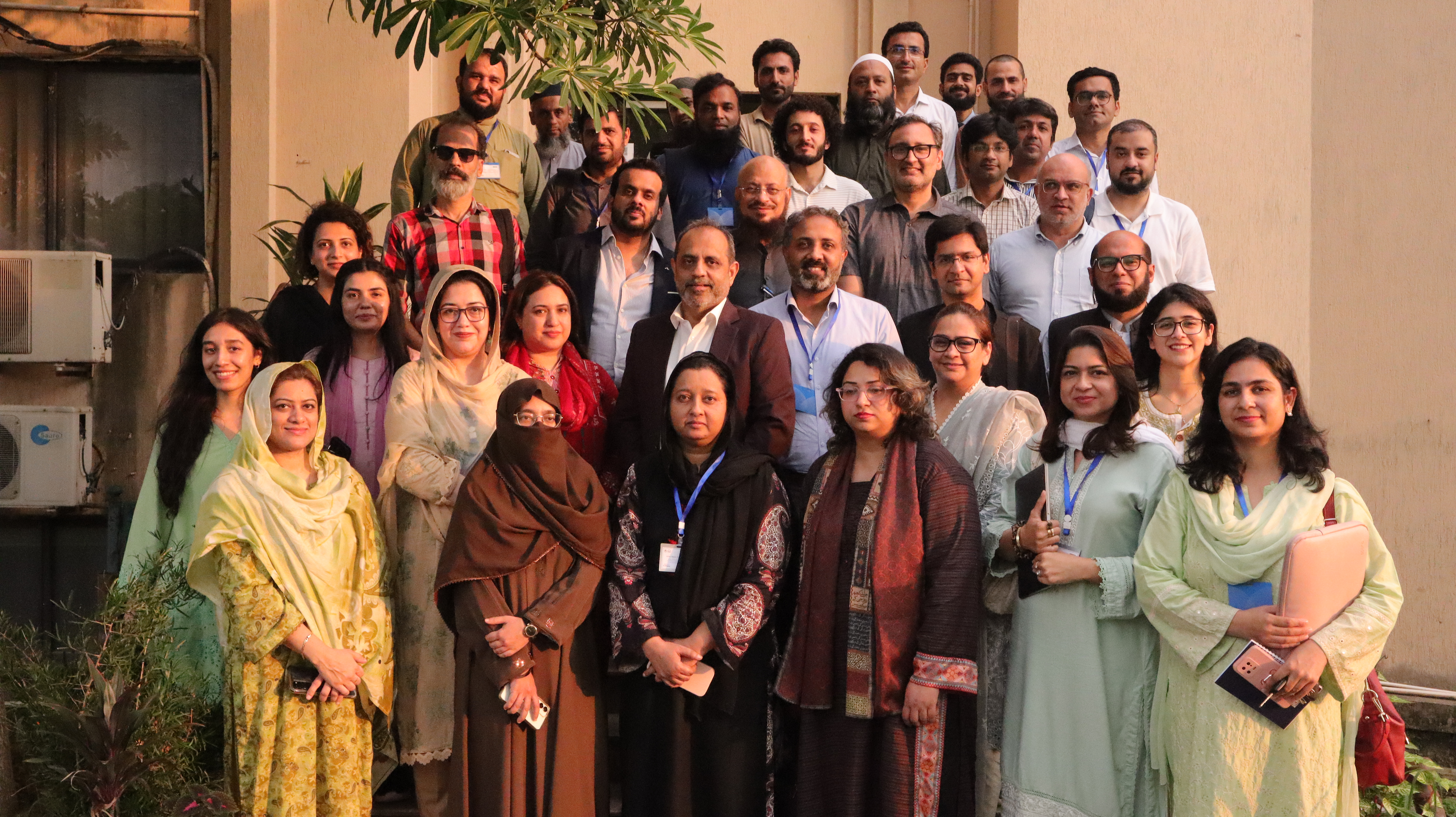
Venue: HEC regional center, Islamabad
Date: 11-12, Sep 2025
We are pleased to share that the Meta Master Trainer Program, delivered by Meta representative Atomcamp and led by Dr. Naveed Iftikhar & Dr. Shoab A Khan was successfully completed on 11–12 September 2025 at smart classroom, HEC H-8/1, Islamabad. This achievement was made possible through the collaboration of NCEAC, under the leadership of Prof. Dr. Shoab A. Khan, Member NCEAC, who played a central role in aligning the program with national computing education priorities and ensuring its impact on faculty development. As part of its broader mandate, NCEAC continues to provide platforms that improve the quality of computing education in Pakistan, while fulfilling its duties of accreditation and ensuring academic excellence nationwide. As a result, 30 Master Trainers from across Pakistan have now been prepared to conduct a series of 4-day workshops nationwide. These trainers will introduce Generative AI into classrooms, inspire faculty, and help spread this movement across campuses.
This program is not just training—it is the beginning of a movement to shape the future of teaching and learning in Pakistan.
We extend our sincere gratitude to Meta, the Ministry of IT & Telecommunication, Pakistan Software Export Board (PSEB), Higher Education Commission (HEC), NCEAC, and atomcamp for making this vision a reality.
Industry and Academia Rendezvous
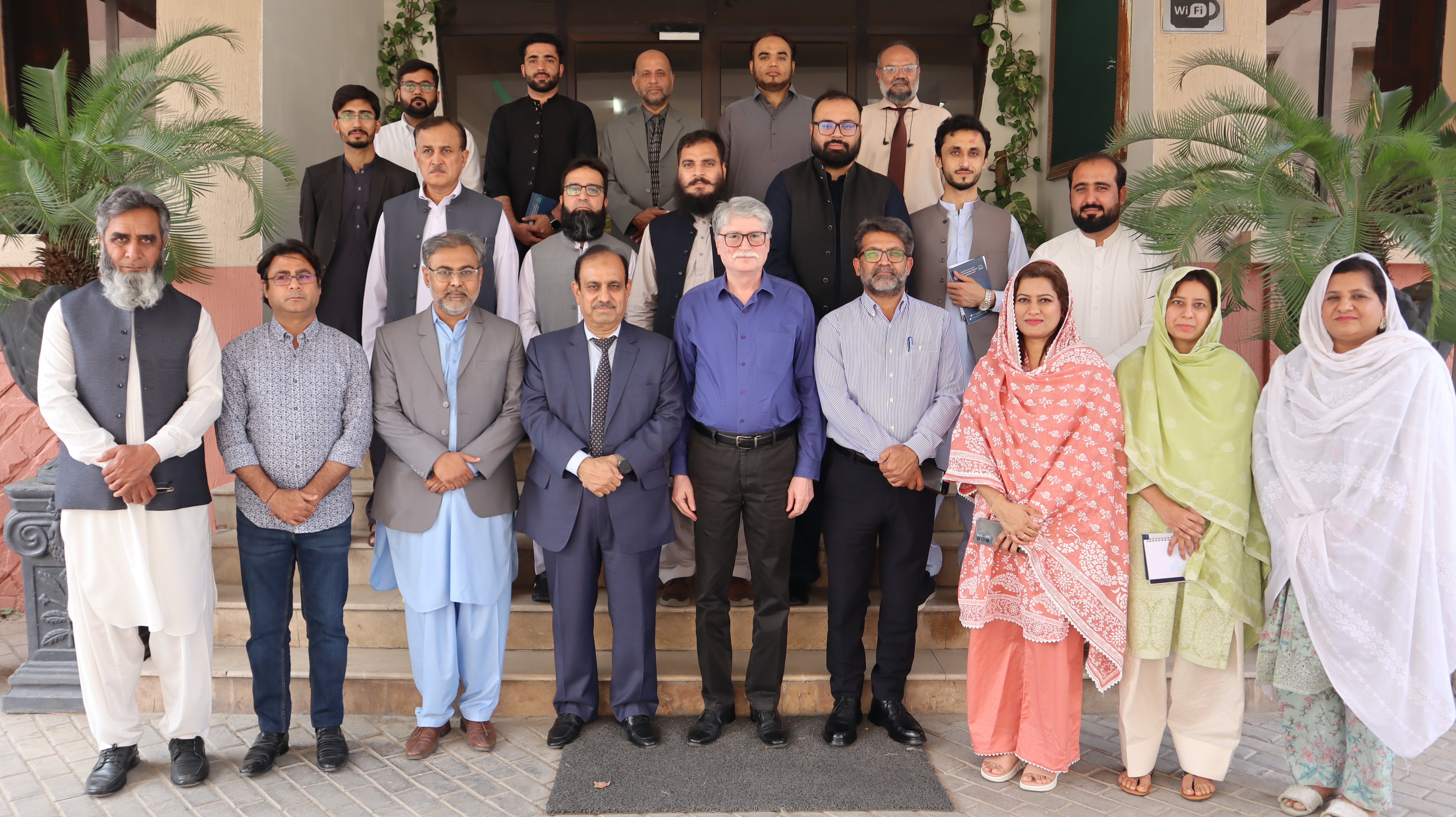
Venue: HEC regional center, Peshawar
Date: April 2025
A total of 16 faculty members from universities in Peshawar and 4 participants from the industry based in Peshawar took part in the workshop. Faculty members shared their experiences in teaching programming courses, while industry representatives provided insights into local industry needs and future directions. The discussion focused on the following key point:
-
Pedagogy of teaching programming courses
- Use of tools and technologies to enhance user experience.
- Use of tools and technologies to improve the skills of the students as well as faculty.
- Inviting people from industry to share their experiences.
- Engage industry for class as well as senior projects.
-
Curriculum Framework and Reform
- Align curriculum with industrial demands and international standards.
- Industry input to guide curriculum updates.
- Considering integration of certifications (e.g., Coursera) into electives.
- Faculty training in understanding and implementation of curriculum.
-
Technology & Infrastructure Gaps
- Address digital divide and poor Internet/connectivity in remote areas.
- Propose at least one high-tech computing lab per university by 2025.
- Use government-backed projects (e.g., HEDP) for lab setup.
- Free or subsidized access to essential software (MATLAB, ERP, etc.).
- Promote shared access models and cloud-based resources.
-
Innovation and Product-Oriented Research
- Push for incubator culture in computing institutions.
- At least one incubator per institution within 2–3 years.
- Encourage universities to develop local IT products to reduce dependency on expensive foreign subscriptions (e.g., ICI example).
-
Quality & Accreditation Standards
- Strengthen accreditation through self-assessment, cluster models, and simplified processes.
- Promote OBE (Outcome-Based Education).
- Address challenges with unqualified colleges offering CS programs—such as faculty qualifications (e.g., PhD requirement).
-
Industry-Academia Linkages
- Emphasize local industry collaboration for real-world relevance and involve experienced people from industry as visiting industry teachers and professors of practice
- Encourage mentorship and curriculum alignment with industry demands
- Engage with industry to provide internships to students
- Seek options for faculty placement in industry for their upskilling
-
Policy & Implementation Challenges
- Funding remains a core issue; PC-1 process is slow.
- Training programs should be developed for faculty members to equip them with the latest pedagogical as well as technical skills.
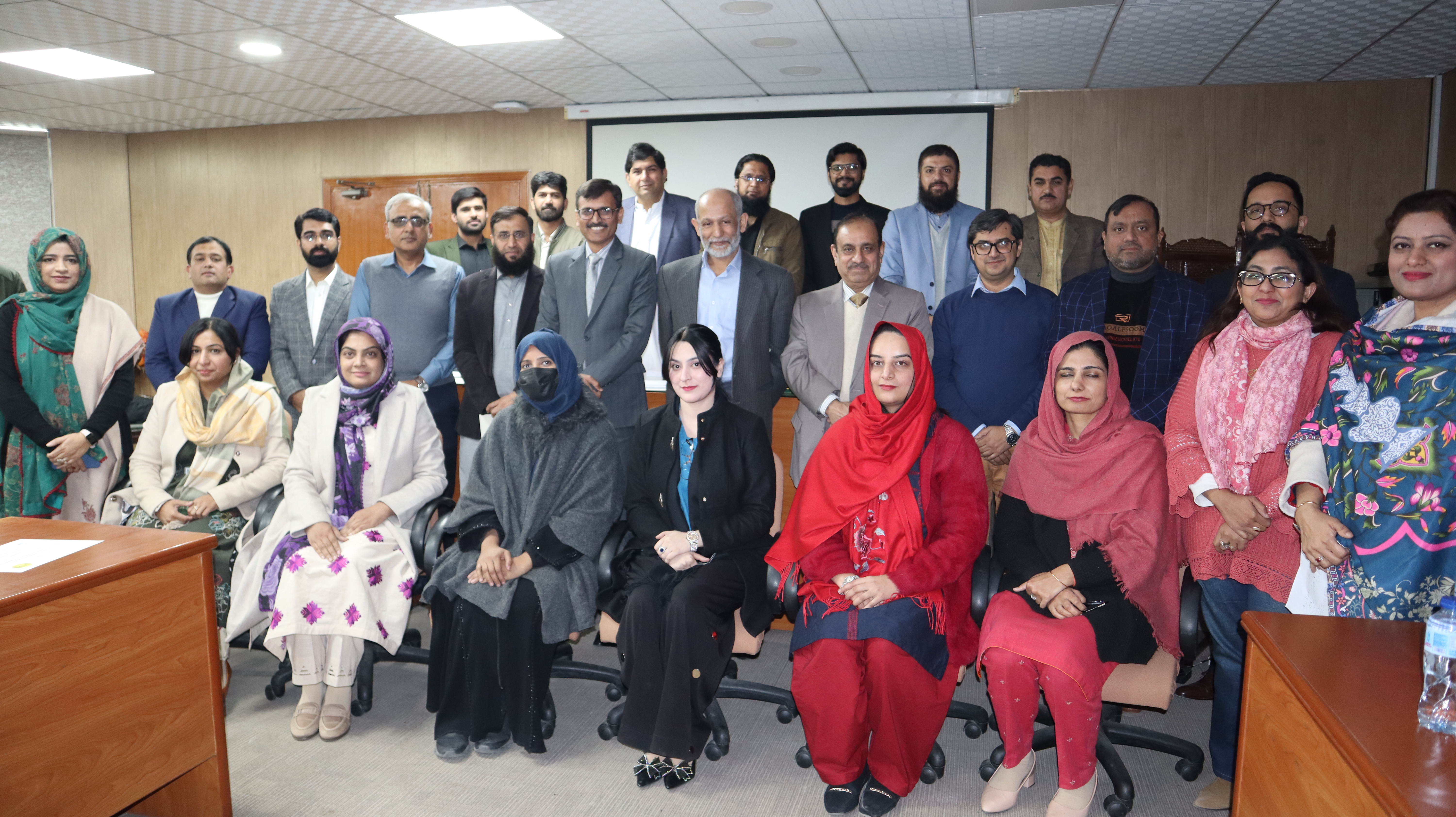
Venue: HEC, LI Hall, Islamabad
Date: Jan 2025
A total of 14 faculty members from universities in Islamabad and 4 participants from the industry based in Islamabad took part in the workshop. Faculty members shared their experiences in teaching programming courses, while industry representatives provided insights into local industry needs and future directions. The discussion focused on the following key point:
- Best pedagogical approaches for teaching programming should be adopted in Institutions
- Developed algorithmic thinking to students
- Role of AI in programming education is important
- Labs should be upgraded for students for effective learning
- Effective use of programming environments in Universities
- The Higher Education Commission (HEC) should establish a policy regarding salary packages for industry professionals who teach at universities.
- Training programs should be developed for faculty members to equip them with the skills to train teachers in programming and AI.
- Provide real-world problem-solving experiences through internships and industry partnerships.
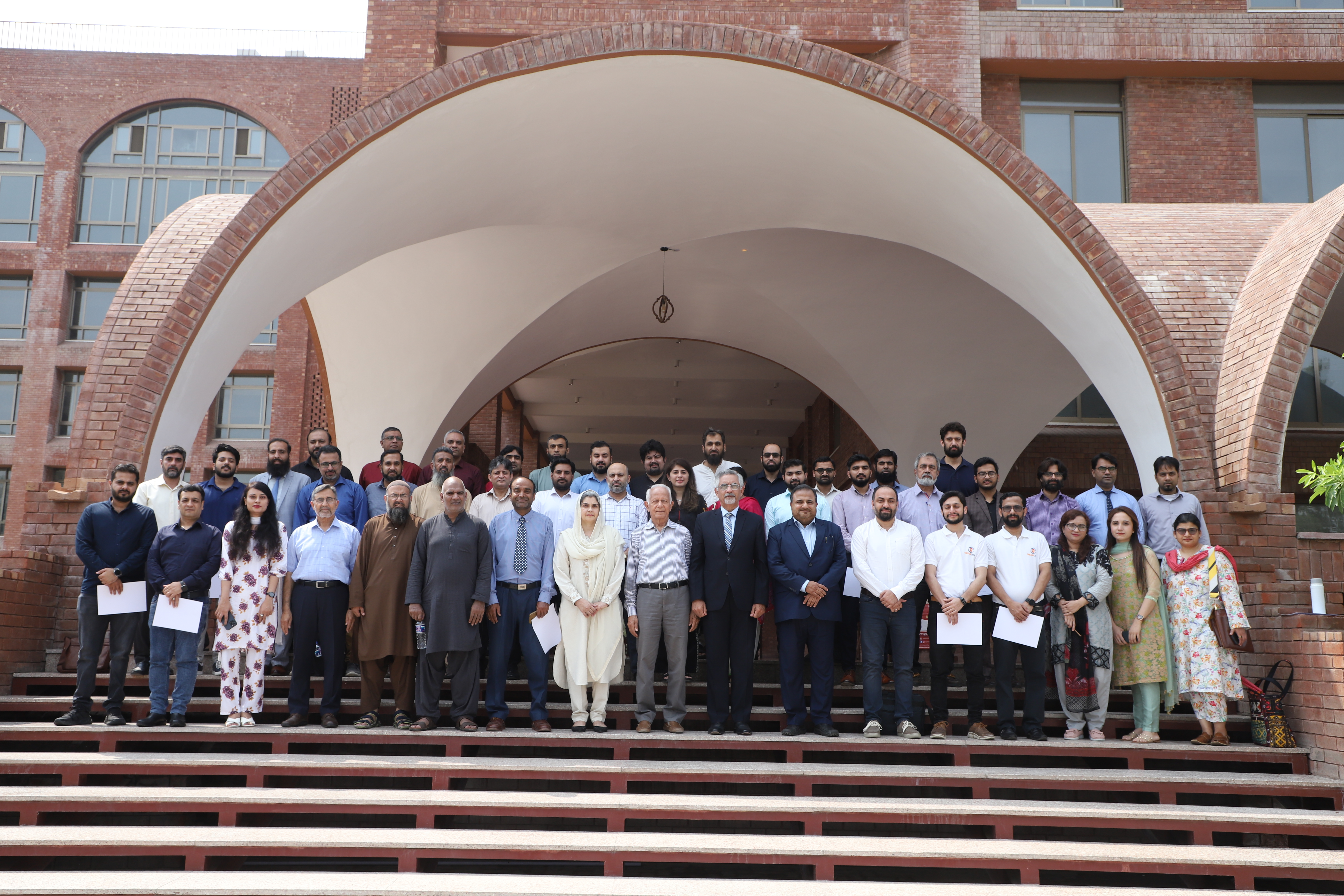
Venue: Qarshi University, Lahore
Date: July 2024
A total of 30 faculty members from universities in Lahore and 15 participants from the industry based in Lahore took part in the workshop. Faculty members shared their experiences in teaching programming courses, while industry representatives provided insights into local industry needs and future directions. The discussion focused on the following key point:
- Introduce Python or JavaScript as the first programming language to emphasize problem-solving over syntax.
- Encourage the use of generative AI tools like ChatGPT for code generation and debugging, with human oversight for refinement.
- Integrate GitHub, Slack, and Scrum into classroom projects to expose students to industry tools and collaboration practices.
- Align curriculum with real-world applications, including case studies and industry-relevant frameworks.
- Incorporate coding challenges from HackerRank, CodeChef, LeetCode, and CodeForces into the curriculum to focus on problem-solving skills.
- Utilize platforms like Moss for plagiarism checking to ensure originality and maintain academic integrity.
- Use Raptor or similar tools to help students visualize and understand code logic early in the course.
- Introduce debuggers as early as possible in the curriculum to teach students effective troubleshooting techniques.
- Pair inexperienced teachers with industry professionals for mentorship and curriculum design support.
- Organize coding competitions and workshops to reinforce the focus on problem-solving as emphasized by Dr. Aksam.
- Ensure teachers are actively involved in lab work to improve practical teaching quality.
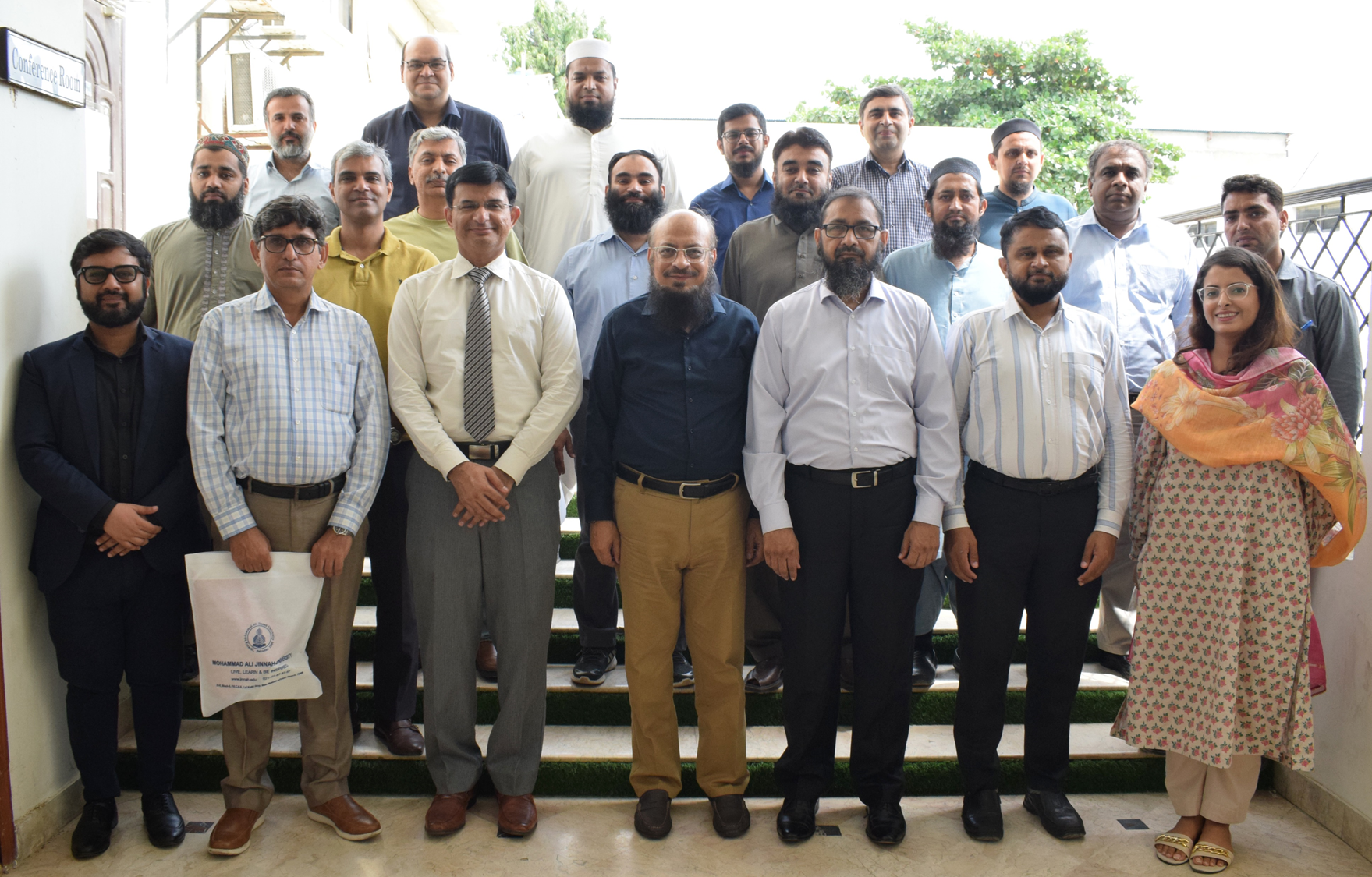
Venue: MAJU, Karachi
Date:June 2024
A total of 14 faculty members from universities in Karachi and 6 participants from the industry based in Karachi took part in the workshop. Faculty members shared their experiences in teaching programming courses, while industry representatives provided insights into local industry needs and future directions. The discussion focused on the following key point:
- Align curricula with industry needs.
- Use active learning and project-based tasks.
- Prioritize algorithmic thinking with coding challenges.
- Start with beginner-friendly languages like Java scripting, Python.
- Integrate AI tools like GitHub Copilot.
- Teach essential tools like GitHub, Jira, and Docker.
- Foster collaboration through pair programming and group projects
- Encourage continuous learning through coding competitions and hackathons.
- Offer mentorship programs to bridge the gap between students and industry professionals.
OBE based trainings

Venue: HEC Regional Center, Peshawar
Date:23 April 2019
A total of 15 faculty members from universities in Peshawar took part in the workshop. Faculty members shared their experiences in teaching programming courses. The discussion focused on the following key point:
-
International Accreditation for Computing Programs
- Seoul Accord.
- Membership & Monitoring Procedures.
- Seoul Accord Graduate Attributes & guiding principles.
- Outcomes Based Education
- Continuous Quality Improvement in OBE
- Three Domains in Bloom’s Taxonomy
- Designing Course Learning Outcomes (CLOs)
- Mapping of Course Learning Outcomes on Program Learning Objectives
- Transition from Current NCEAC Accreditation to Outcome Based Accreditation
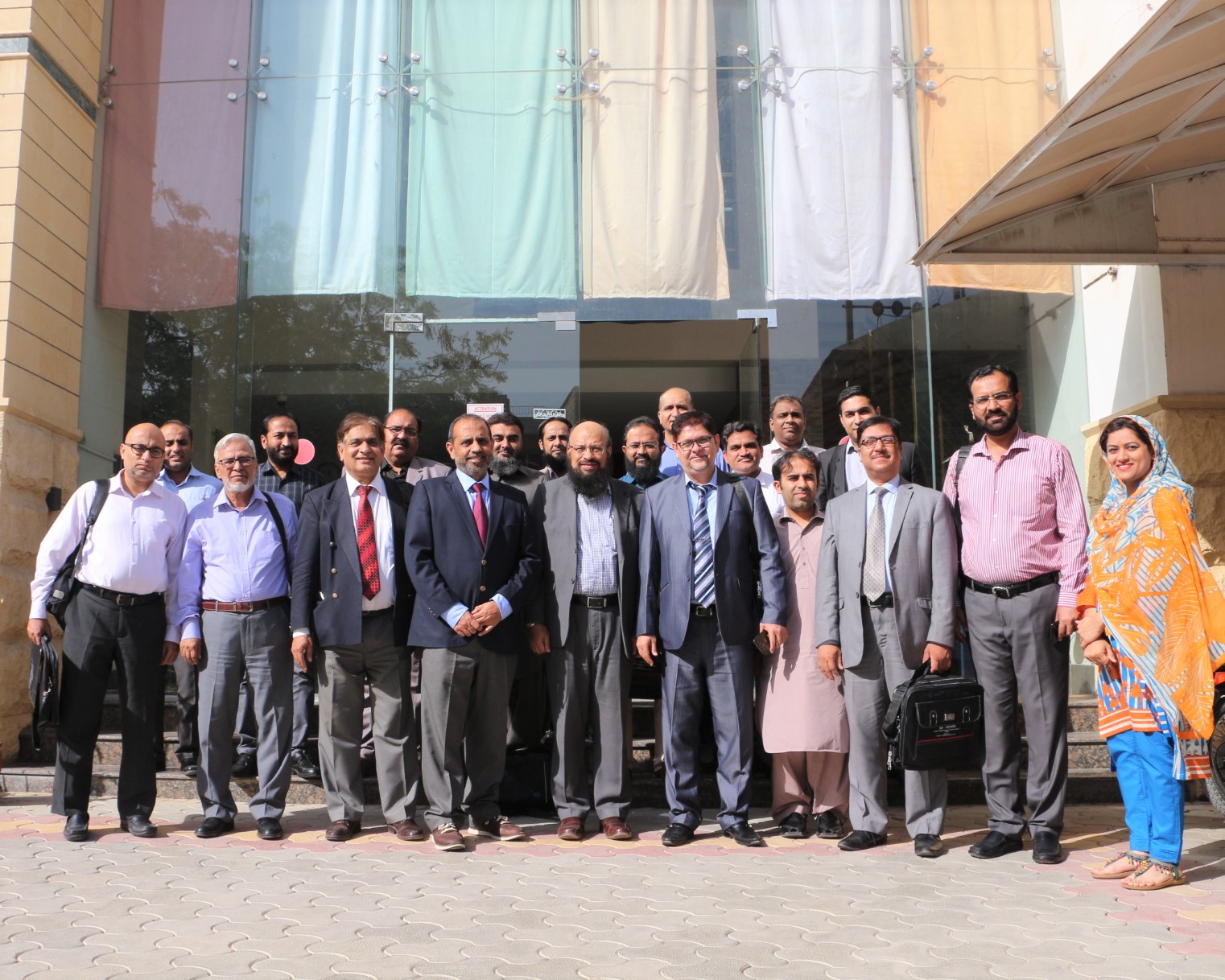
Venue: HEC Regional Center, Karachi
Date:8 April 2019
A total of 18 faculty members from universities in Karachi took part in the workshop. Faculty members shared their experiences in teaching programming courses. The discussion focused on the following key point:
- International Accreditation for Computing Programs
- Seoul Accord.
- Membership & Monitoring Procedures.
- Seoul Accord Graduate Attributes & guiding principles.
- Outcomes Based Education
- Continuous Quality Improvement in OBE
- Three Domains in Bloom’s Taxonomy
- Designing Course Learning Outcomes (CLOs)
- Mapping of Course Learning Outcomes on Program Learning Objectives
- Transition from Current NCEAC Accreditation to Outcome Based Accreditation
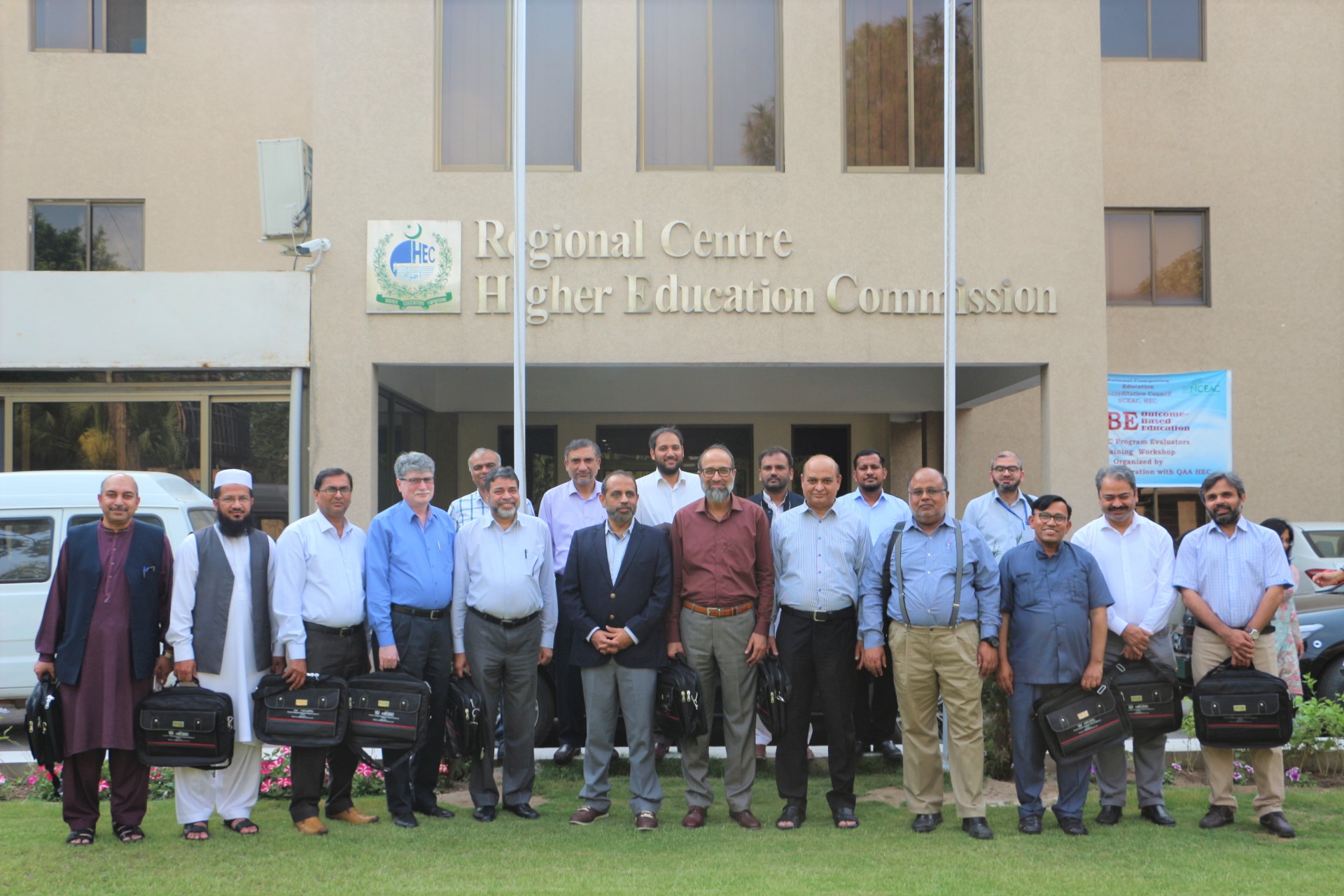
Venue: HEC Regional Center, Lahore
Date:30 March 2019
A total of 17 faculty members from universities in Lahore took part in the workshop. Faculty members shared their experiences in teaching programming courses. The discussion focused on the following key point:
- International Accreditation for Computing Programs
- Seoul Accord.
- Membership & Monitoring Procedures.
- Seoul Accord Graduate Attributes & guiding principles.
- Outcomes Based Education
- Continuous Quality Improvement in OBE
- Three Domains in Bloom’s Taxonomy
- Designing Course Learning Outcomes (CLOs)
- Mapping of Course Learning Outcomes on Program Learning Objectives
- Transition from Current NCEAC Accreditation to Outcome Based Accreditation
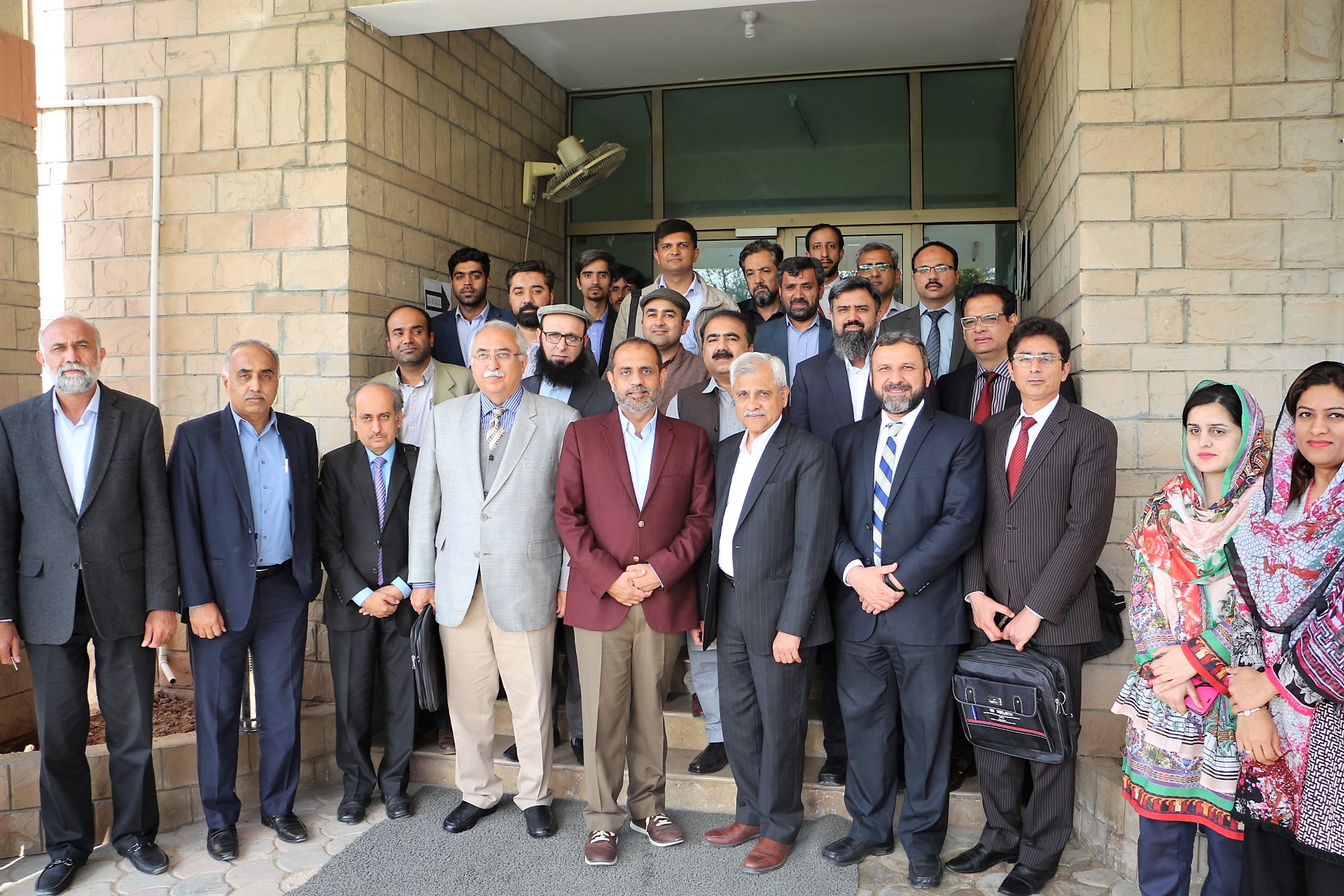
Venue: HEC, LI Hall, Islamabad
Date: 25 March 2019
A total of 18 faculty members from universities in Islamabad took part in the workshop. Faculty members shared their experiences in teaching programming courses. The discussion focused on the following key point:
- International Accreditation for Computing Programs
- Seoul Accord.
- Membership & Monitoring Procedures.
- Seoul Accord Graduate Attributes & guiding principles.
- Outcomes Based Education
- Continuous Quality Improvement in OBE
- Three Domains in Bloom’s Taxonomy
- Designing Course Learning Outcomes (CLOs)
- Mapping of Course Learning Outcomes on Program Learning Objectives
- Transition from Current NCEAC Accreditation to Outcome Based Accreditation